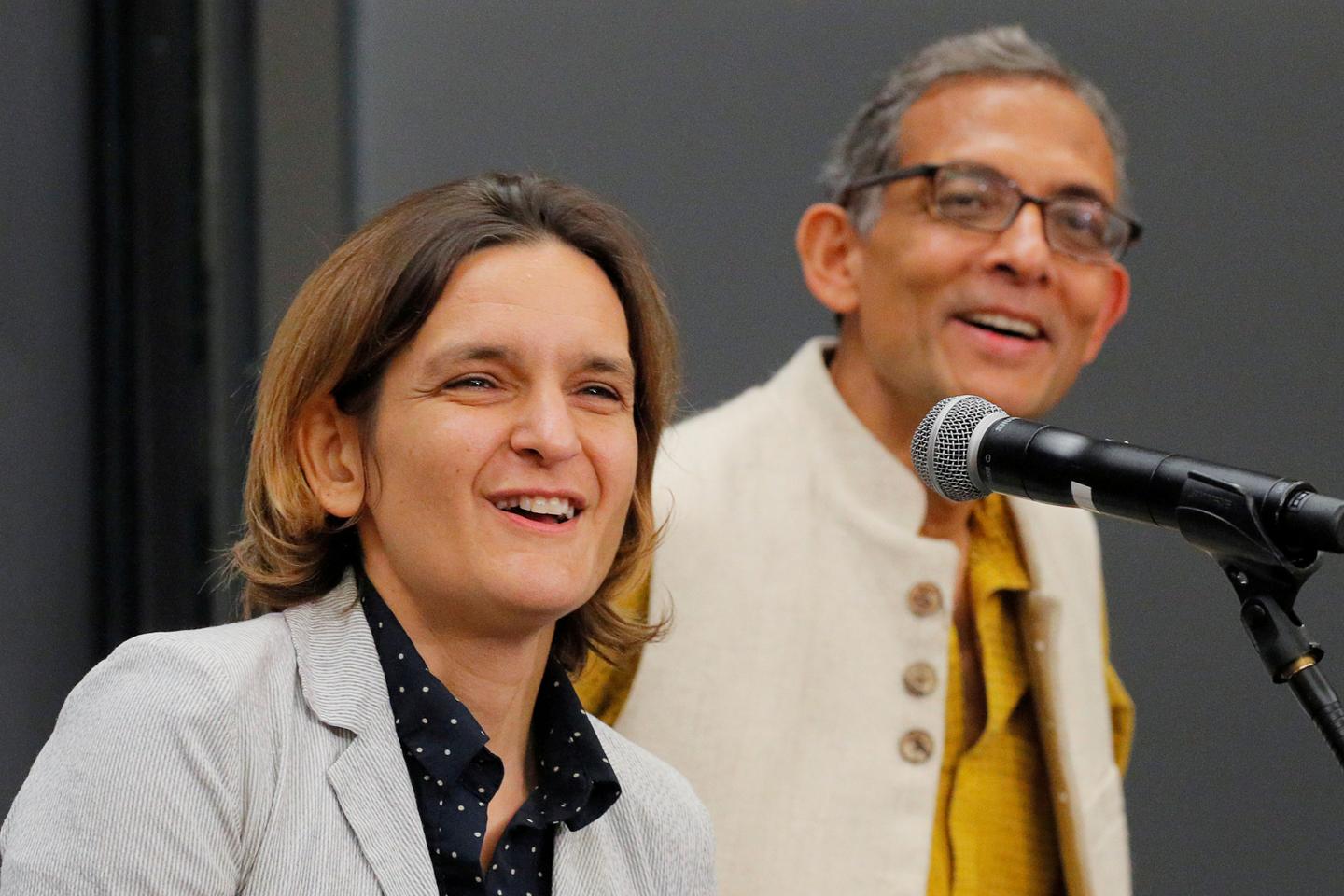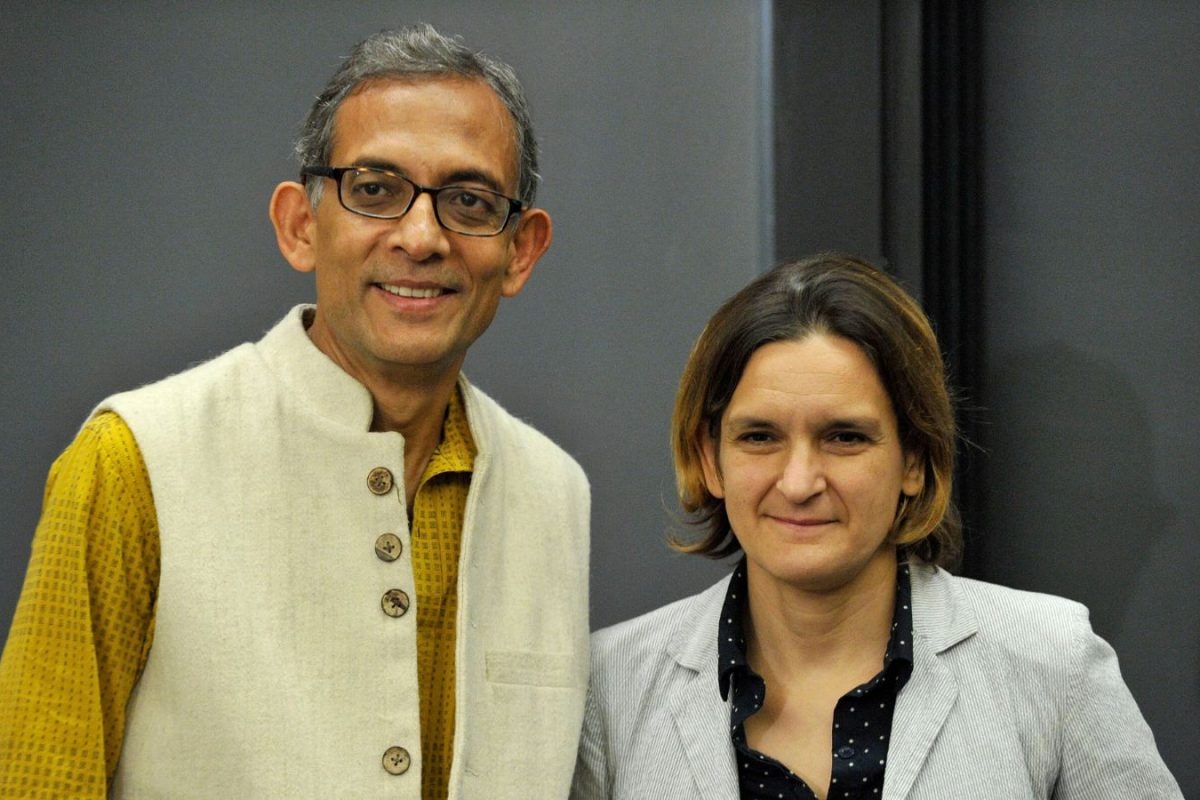In the midst of US funding turmoil, Nobel Laureates Duflo and Banerjee relocate to UZH. Nobel laureates Esther Duflo and Abhijit Banerjee have announced that they will be leaving the United States to join the University of Zurich (UZH) in July 2026, marking a dramatic change in the academic landscape. This action coincides with mounting worries about restrictions on academic freedom and cuts to US research funding.

We examine why this shift is significant below, not only for the couple but also for international research, development economics, and the distribution of talent among countries.
Why the Move Matters: From MIT to Zurich
A Bold Shift in the Global Academic Landscape
Even as they start their new jobs at UZH, Esther Duflo and Abhijit Banerjee, who are both currently faculty at MIT, will continue to work there part-time. This is more than just a change of address; it represents a change in the areas where top academics believe there is the greatest opportunity and institutional support.
US Funding Cuts & Academic Freedom Concerns
The couple’s departure, according to observers, comes as pressure on US scientific institutions is increasing. This pressure includes attempts to link funding to specific political or immigration mandates, cuts to research funding, and broader discussions about academic freedom. At a time when international rivals compete for top talent, some believe this to be a part of a larger “brain drain” from the United States.
What They’ll Do at Zurich: The Lemann Center & Endowed Chairs
Co-Leading the Lemann Center
Duflo and Banerjee will co-lead a new Lemann Center for Development, Education, and Public Policy at UZH. The center’s mission is to foster international networks between scholars and education policymakers by bridging the gap between academic theory and practical policy.
They intend to introduce Master-level courses, promote partnerships (particularly between UZH and Latin American institutions), and strengthen policy-evaluation capabilities in nations facing urgent development issues.
Endowed Professorships Backed by Philanthropy
Each will have a Lemann Foundation-funded endowment professorship at UZH. These professorships are supported by a philanthropic donation of CHF 26 million, or roughly USD 32 million.
Zurich is a competitive center for development economics because of the funding level, which guarantees institutional stability and draws in additional research infrastructure.
The Work They Carry Forward: Research, J-PAL, & Teaching
Anchors in Development Economics
Duflo and Banerjee won the Nobel Prize in 2019 (alongside Michael Kremer) for their empirical, experimental approach to reducing global poverty. Their reputation is based on a combination of policy relevance and rigorous trials.
Continuing J-PAL & Global Network
They will keep co-leading J-PAL (Abdul Latif Jameel Poverty Action Lab), their global research network that comes up with and tests ways to fight poverty. Keeping these roles will help many of their ongoing projects continue, even though their institutional base is changing.
Expanding Teaching & Mentorship
Duflo and Banerjee’s plan also includes plans to make educational programs at UZH bigger. They want to add new classes, training programs, and scholarships, with a focus on reaching out to areas that aren’t represented, like Brazil.
The new center will also use parts of the ADEPT program, which was started by J-PAL and combines online and in-person teaching to help people learn new skills.
Implications: Global Talent Shifts & Academic Strategy
Europe (and Switzerland) Gains a Big Win
Zurich’s acquisition greatly improves its reputation in the fields of economics and development research. When choosing a university, scholars often consider more than just salary. They also look at things like institutional support, funding security, and academic freedom, which are all areas where UZH is doing well.
Does This Signal a Brain Drain from the USA?
Many see this as a meaningful signal: when top researchers depart, it could encourage more to reconsider their institutional attachments. Experts warn that US policy shifts may inadvertently encourage such movements.
What It Means for India & Developing Countries
Banerjee, originally Indian-born, and Duflo have long been advocates for development in the Global South. Their presence in Zurich could strengthen ties and research collaborations with Indian and other emerging economies. It might also shift the locus of development-policy debates further outside the U.S.

Potential Challenges & Questions
Balancing Dual Roles
Maintaining part-time roles at MIT while being full-time in Zurich may strain focus and logistical alignment. Ensuring leadership both in research networks and local commitments will require clever institutional design.
Integration & Local Research Ecosystem
Will UZH be able to recruit complementary talent and foster a vibrant local ecosystem? The success of the Lemann Center depends not only on its star founders but on depth in student pipeline, postdocs, and partner institutions.
Funding & Sustainability
While the initial endowment is generous, sustaining programs—especially expensive field experiments and global collaborations—requires ongoing funding, and that demands institutional commitment beyond founders.
Looking Ahead: What to Watch
- The Official Launch: Their arrival at UZH is scheduled for July 2026.
- Program Announcements & Course Listings: Details of Master’s programs, international scholarships, and partnerships with developing countries will set the tone.
- Ongoing U.S.–Europe Talent Flows: Whether this is an isolated high-profile case or the start of a trend will be watched keenly.
- Influence on Global Development Policy: With a shift in base, their relationships with policymakers, NGOs, and governments may evolve in interesting ways.
In moving to Zurich, Duflo and Banerjee are doing more than changing institutions. They’re helping to reposition where high-end, mission-oriented development economics is anchored. For students, researchers, and global policy watchers, this is a fascinating moment—one that could reshape academic geography and the infrastructure of change.





